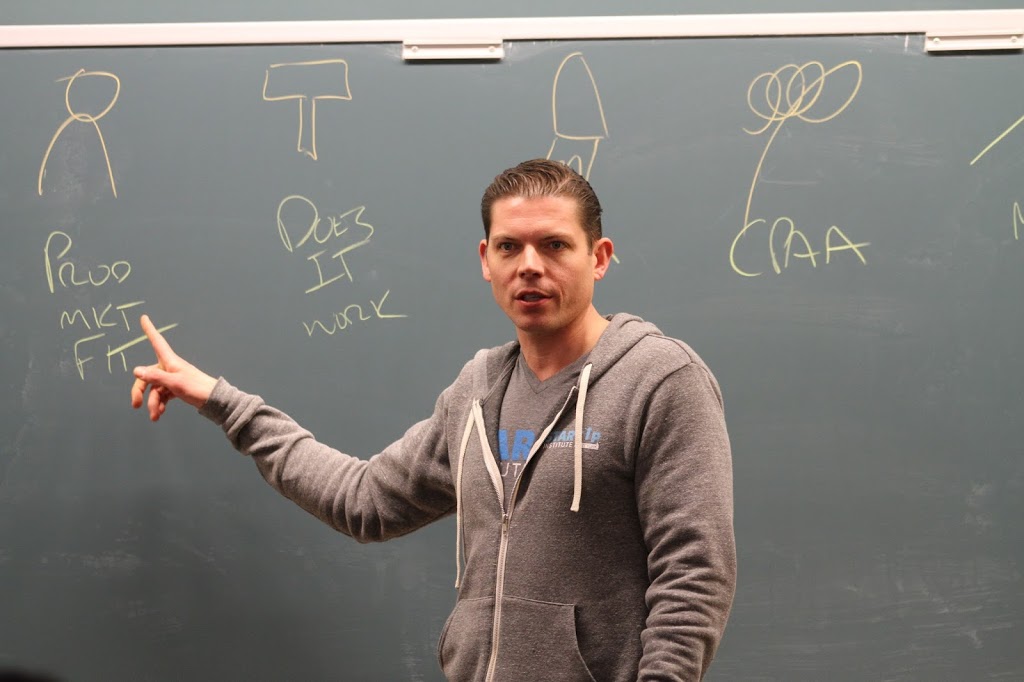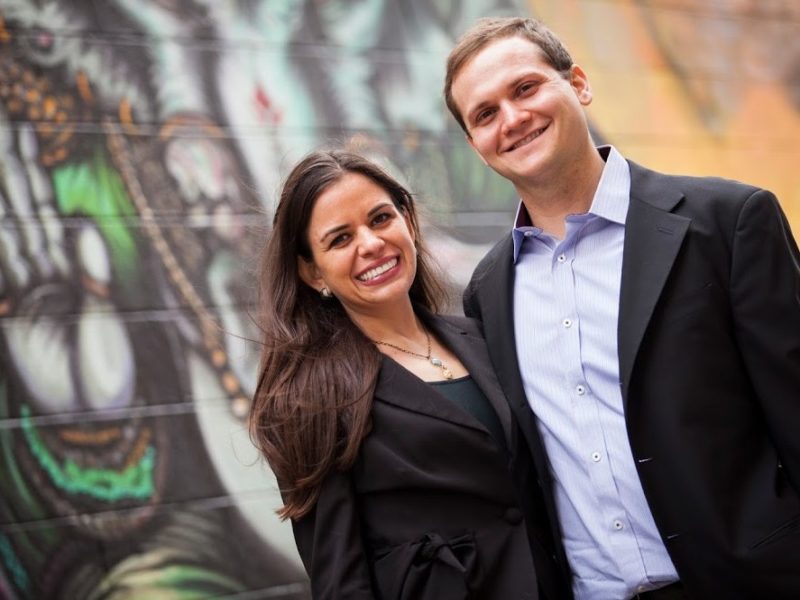
The Startup Institute Emphasizes Company Culture over Coding
Startup Institute’s aim is to match potential employees to the correct startup—telling those employees not just to search for a job but for the “right job.”
“Finding someone who writes code is not hard [for a company],” Global Managing Director Jason Henrichs said. But finding someone who thrives on the roller coaster schedule of the startup life? That’s another story.
 |
| Jason Henrichs, shown here in a Harvard classroom, often steps into the Startup Institute classroom himself. |
The Startup Institute offers an “intensive experience” centered around an eight-week, full-time program that gives technical instruction—that coding experience that isn’t hard to find—alongside a core curriculum that teaches startup culture. The city boasts a handful of similar programs—like The Starter League, co-founded by Chicago Ideas Co-op Member Mike McGee—that provide instruction to individuals interested in starting their own companies. But not everyone wants to start their startup career as founder and CEO—something that The Startup Institute recognizes. Its coursework is aimed at the startup employee, not employer, teaching people how to work on the ground at companies in their infancies.
In turn, Startup Institute grads help the startups themselves find good employee matches. “The challenge [for startup companies],” Henrichs said, “is you’re adding lots of people really fast.”
In a city whose work and tech culture differs from that of Silicon Valley or the Research Triangle, Startup Institute Chicago teaches the Lean Startup Methodology tailored to River North and other Chicago hotbeds of innovation. The method stresses the importance of treating the “evolution” of startup products as distinct from product development in a more established firm.
After going through the coursework, some people learn that the startup life is not actually what they’re after. From his own experiences in Silicon Valley, Boston and Chicago, Henrichs knows the importance of finding the right team players. He likens a startup to an orchestra: Since all musicians contribute to the melody the audience hears, it’s important that they all be in tune.
After going through the coursework, some people learn that the startup life is not actually what they’re after. From his own experiences in Silicon Valley, Boston and Chicago, Henrichs knows the importance of finding the right team players. He likens a startup to an orchestra: Since all musicians contribute to the melody the audience hears, it’s important that they all be in tune.
You can learn more about the Startup Institute at an upcoming CIW Members’ Lab Thursday, July 24. Learn more and buy tickets here.




